
People affected by the earthquake charge their mobile phones at a temporary site in Dahejia town, Jishishan, on Wednesday. (Photo by Wei Xiaohao/China Daily)
Residents, rescuers and survivors tell of dealing with the Gansu earthquake
Monday night is already indelibly chiseled in the memory of 57-year-old Ma Maidong. After experiencing a 6.2 magnitude earthquake, he and his family, dressed in light clothing, waited to be rescued in an open field with temperatures dropping below-10 degrees Celsius.
A minute before midnight, an unexpected earthquake rattled Jishishan county in Linxia Hui autonomous prefecture in Northwest China's Gansu province. By 9 am on Wednesday, the earthquake had caused 113 deaths and 782 injuries, according to the Gansu provincial earthquake relief headquarters. In nearby Qinghai province, 21 were dead and 198 injured, with 13 missing.
Ma, a resident of Yangwa village in Liuji township, one of the severely affected areas, has a family of nine. Fortunately, that night only he, his wife and his grandson were staying in the family residence. His two sons and their wives were working in other areas, while Ma's two other grandchildren were at a boarding school in the county.
Realizing the imminent danger, Ma hastily woke his wife and grandson and guided them to an open area outside the courtyard of their home seconds before the residence crumbled.
The outside temperature had plummeted and Ma saw many of his neighbors, similarly dressed in minimal clothing, anxiously watching events unfold as they stood in the open field. Eventually, they lit a fire to keep warm.
"We were so afraid, and it was extremely cold. The mixed feelings puzzled me," he said.
The village roads to the outside world were blocked by mudslides and rocks. Ma regained his composure and called relatives in the county and arranged for them to pick up his two grandchildren at the boarding school.

Forest firefighters help villagers move their sheep to safety on Wednesday after an earthquake damaged fences in Shiyuan town, Jishishan. (Photo by Wei Xiaohao/China Daily)
"The collapsed house can be rebuilt later. Faced with such a natural disaster it's fortunate that there were no casualties among my family members," he said.
Ma's grandchildren are currently sheltering with him and his wife in a disaster-relief tent provided by local authorities. He estimates it will cost 500,000 yuan to rebuild his home, which will have to wait until spring when it is warmer. Construction activities are currently hindered by the low temperatures.
The earthquake's epicenter was in Jishishan county. Cities in Gansu, including Lanzhou, Qingyang and Pingliang, experienced noticeable tremors. As of 8 am on Tuesday, the China Earthquake Networks Center had recorded 32 aftershocks, with the highest intensity being a 4.1 magnitude quake.
In Jishishan, school walls collapsed and buildings were damaged, but all students were safely relocated and appeared to be suffering no emotional trauma, according to local authorities.
Zhang Shunshan, vice-principal of Gajichunlei Primary School in Liugou township, Jishishan, said after the earthquake that 79 boarding students had followed practice drills and were quickly evacuated safely to the playground. Temperatures were below — 10 C and teachers used charcoal to light fires and provided quilts to keep the students warm.
Zhang said after ensuring the safety of students, teachers promptly notified parents and guardians to pick them up. All 79 students were safely collected by 10 am Tuesday.
Immediately following the disaster, over 4,500 personnel and more than 820 vehicles from the PLA Western Theater Command, the Gansu Provincial Military Command, People's Armed Police Force Gansu Corps, Gansu provincial fire rescue corps, as well as provincial and nongovernmental emergency rescue teams were mobilized to the disaster area.
Liu Xuefeng, deputy commander of Gansu Provincial Forest Fire Brigade, said that they arrived at Jishishan around 2 am on Tuesday and quickly initiated rescue operations.

People wait for free beef noodles at a resettlement site on Wednesday after an earthquake hit Shiyuan town in Jishishan, Gansu province, on Monday. [Photo by Wei Xiaohao/China Daily]
Residential houses were severely damaged, especially rural homes with little earthquake resistance. The low temperatures forced many residents to gather wood and light fires for warmth, he said.
Liu said an early challenge for the rescuers was providing enough food, drinking water, shelter and heating devices for the survivors. However, through coordination with government departments at all levels, these challenges were gradually addressed. Food supplies, heating and other necessities have been steadily distributed to the affected areas.
On Wednesday, the rescue teams started to focus on search and rescue work and erecting temporary tents. Under the disaster management plan, Liu's team was assigned to survey all villages in a designated area and rescue any individuals trapped under rubble.
The Gansu Provincial Emergency Management Department said on Wednesday the rescue work is almost over. The focus of on-site personnel will shift to treating the injured and resettling affected residents, while ensuring the safety of people's lives and property.
Medical rescue teams from provinces, prefectures and counties sent 19 teams comprising 667 people and 99 ambulances to assess and classify the injured and transfer them to hospitals.
Severely affected residents have been relocated to safer areas. Governments at all levels have allocated a huge amount of emergency relief materials, including tents, quilts, lights, folding beds and waterproof mats. Food and daily necessities are also being distributed to the affected areas to ensure people have clothing, food and shelter.
All highways, national and provincial main roads, and rural roads have been restored and are open to traffic.
Power has been fully restored to all earthquake-affected areas.








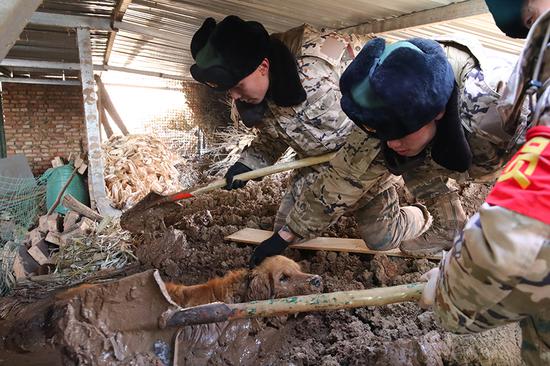
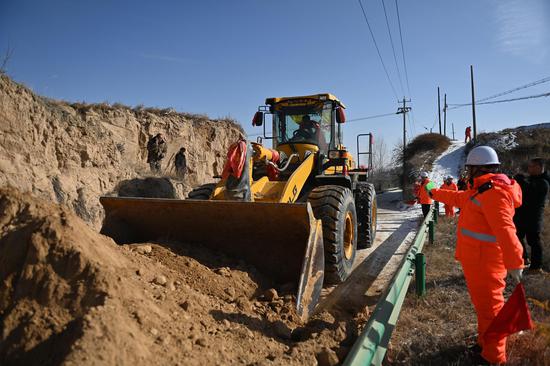
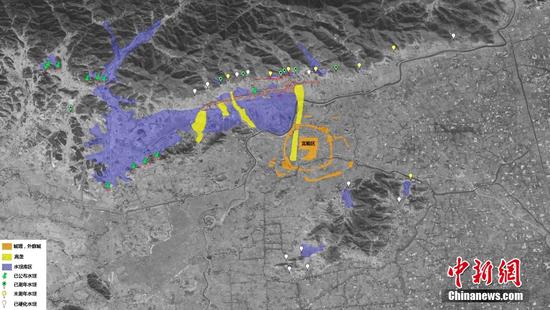
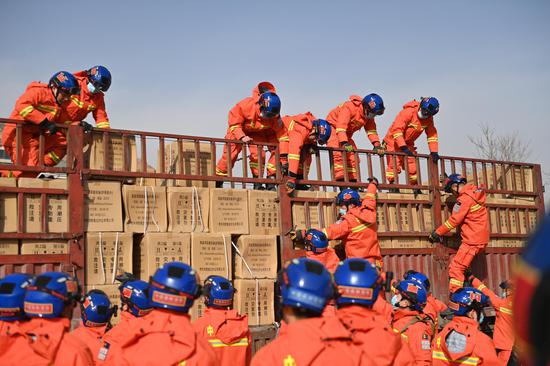

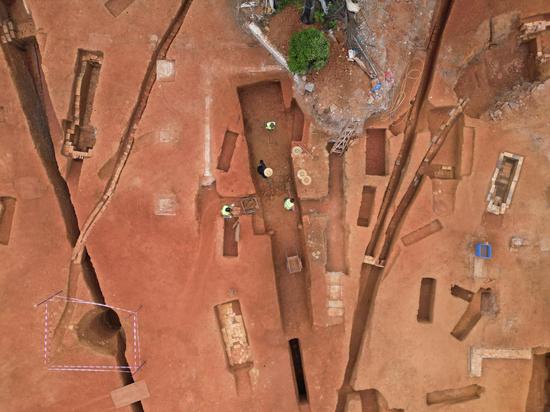

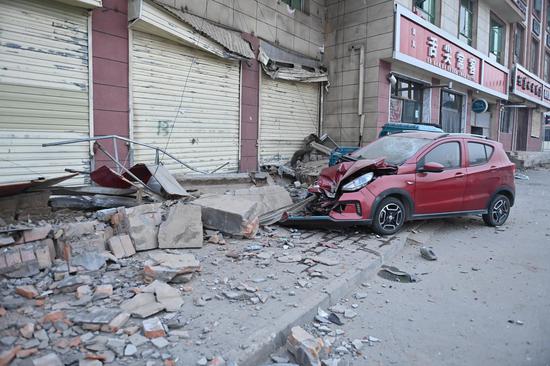



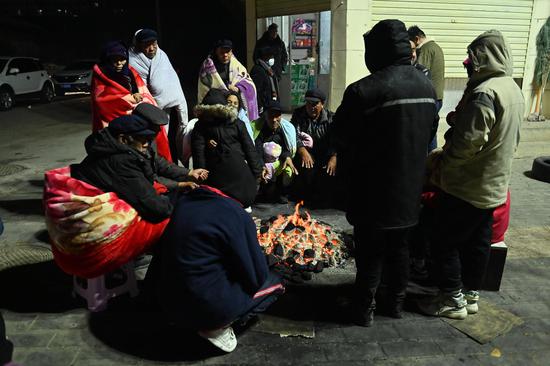



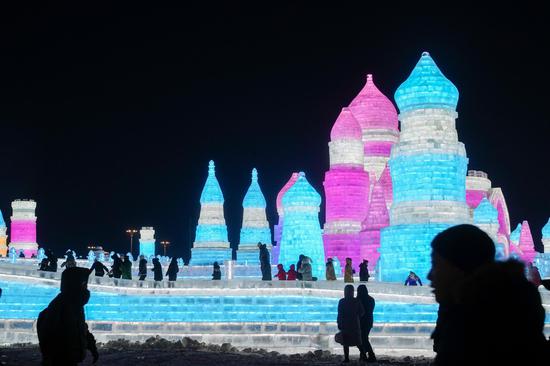
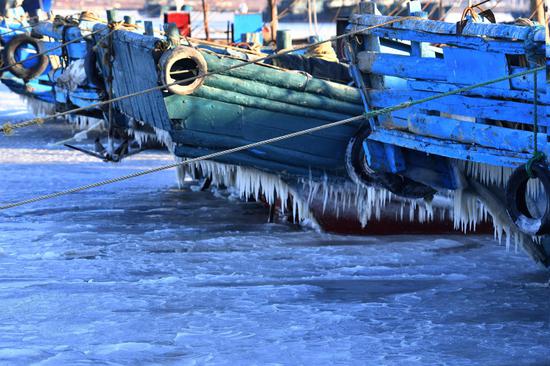


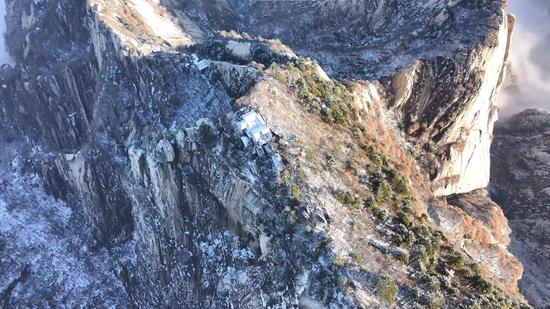


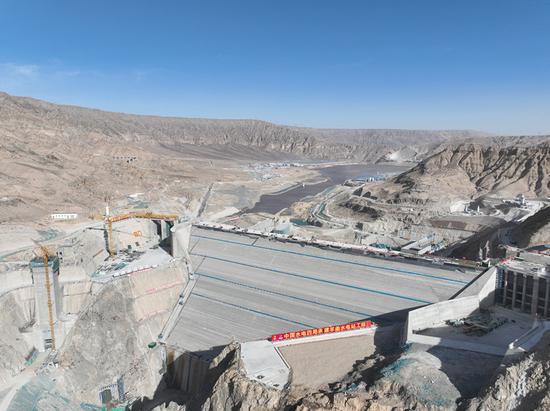

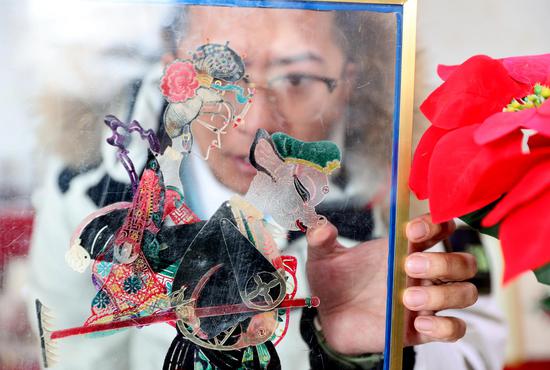

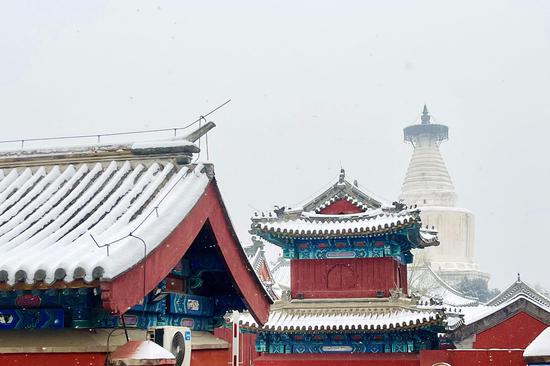

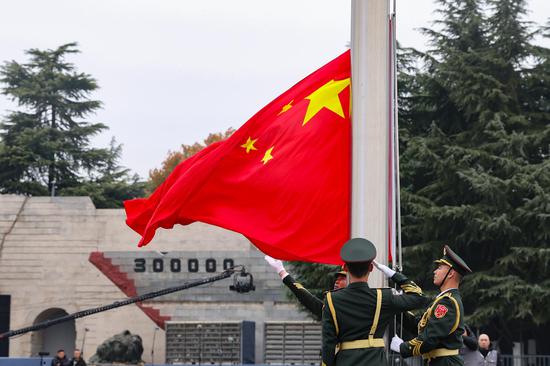






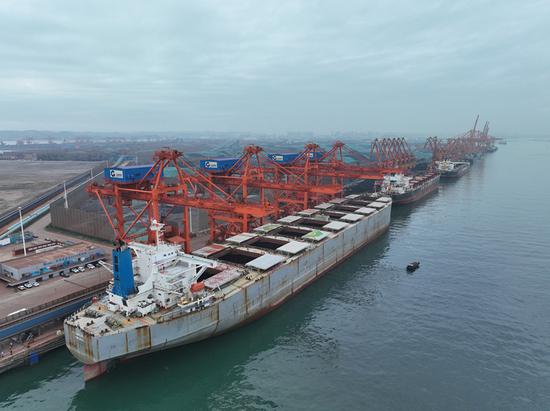






 京公网安备 11010202009201号
京公网安备 11010202009201号